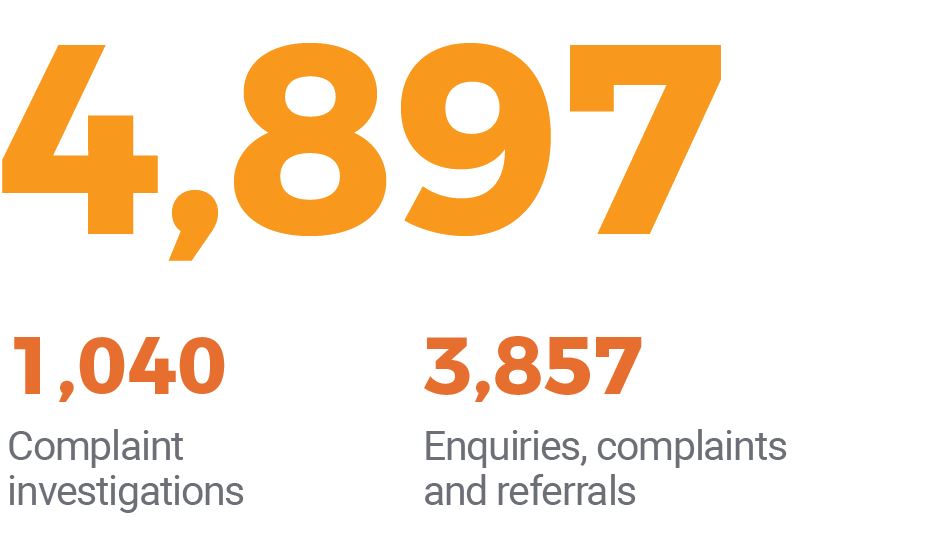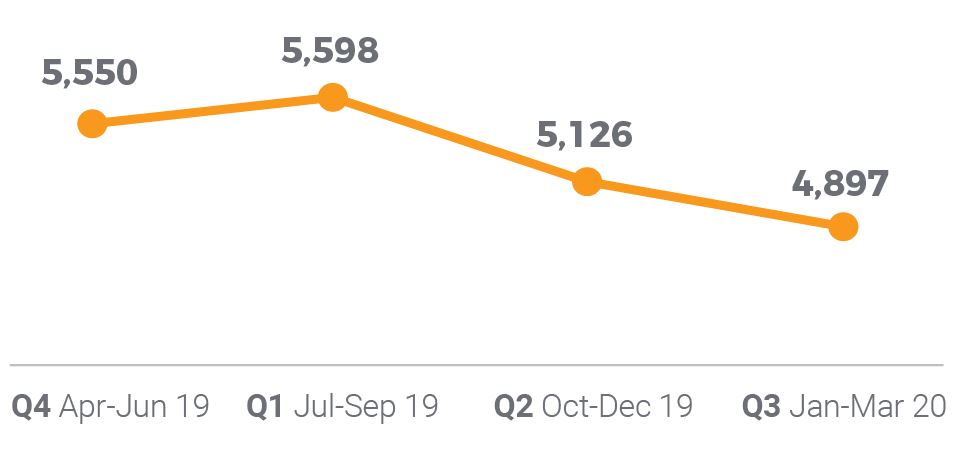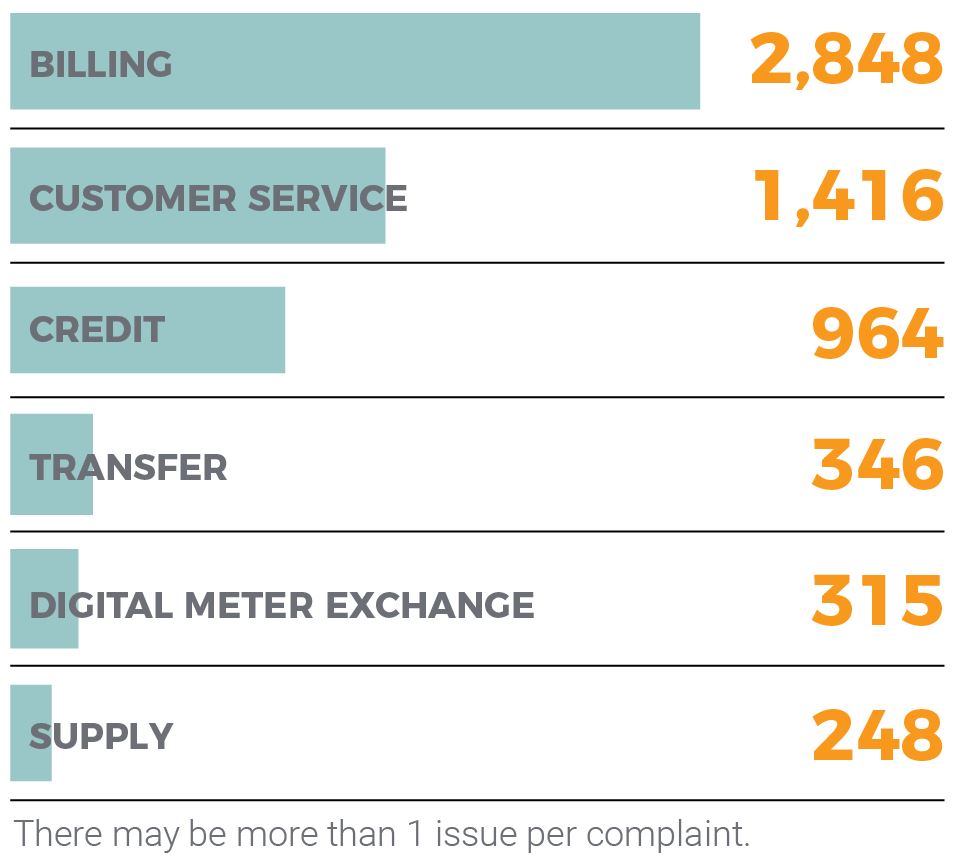A message from the Ombudsman
Coronavirus (COVID-19) has amplified an existing concern for many Australians – energy affordability. Many more households are now facing increased power bills resulting from unemployment, working and schooling from home and self-isolation. The pandemic has also created a dilemma for many people who have no prior experience of wondering how they will pay their energy or water accounts. But in an unprecedented and positive move, we are now seeing both energy retailers and network providers proactively working together to provide affordability assistance to their customers. These steps, combined with State and Commonwealth government stimulus initiatives, round out a rigorous energy affordability support program.
My latest blog COVID-19 sparks long-term energy affordability solution outlines how Coronavirus could be the circuit breaker we need to address energy affordability in the future.
AER calls on all energy businesses to put customers first
The Australian Energy Regulator (AER) responded to the Coronavirus crisis by releasing a comprehensive Statement of Expectations calling on all energy businesses to put customers first during the pandemic. It outlines ten principles it expects energy retailers to follow, including:
- extending affordability arrangements to all customers in financial stress, even if they don't meet the usual criteria
- not disconnecting residential or small business customers in financial stress before 31 July 2020 and possibly beyond
- deferring referrals to debt collection agencies, and not credit default listing customers until at least 31 July 2020
- waiving disconnection, reconnection and/or contract break fees incurred during any period of disconnection until at least 31 July 2020
- waiving daily supply charges for small businesses that have ceased operation.
New EAPA Delivery Guidelines - COVID-19
The NSW Government has significantly boosted Energy Accounts Payment Assistance (EAPA) funding in response to COVID-19. Customers experiencing financial difficulty will now be offered increased support to help pay their residential electricity and gas bills
- Customers who have received the maximum value in EAPA vouchers can now be assessed for another application of vouchers.
- Customers who have received two EAPA approved electricity or gas applications can now be assessed for a third application.
- The Department of Planning, Industry and Environment will consider requests for a fourth or more applications of EAPA vouchers for any customers impacted by COVID-19.
Some EAPA providers are conducting telephone assessments during the COVID-19 crisis. Find the list of EAPA providers taking phone assessments here.
I strongly encourage customers, or their community worker advocates, to reach out to energy providers and take advantage of the assistance being offered during these unsettling times. Phone wait times may be bit longer than usual – so please be patient and if possible, use online contact channels.
EWON has effectively transitioned to working from home arrangements so we are ‘business as usual’ and here if you need us. Stay well!
Janine Young
Ombudsman
Energy & Water Ombudsman NSW
FAQs and support
Please see our page on how we are supporting customers impacted by COVID-19 here.
How to keep energy bills down during COVID-19
Working and studying from home means energy use is likely to increase. Here are some tips to help keep your energy use and your bills down.
Turn off ‘power-hungry’ appliances. This includes old garage / outdoor fridges and plasma TVs. Switch appliances you’re not using off at the wall – this includes your kettle and microwave.
Use natural light. During the day, open blinds and curtains rather than switching lights on. Use LED or fibre-optic bulbs which consume up to 75% less energy than incandescent ones and last up to 10 times longer.
Limit heating and cooling. Air conditioners and heaters can be big energy users. Try to avoid switching them on, especially during the day while autumn temperatures are with us. When cooler weather arrives, use door snakes to stop the cold getting in/heat getting out, rug up and choose comfort heat settings.
Consider your usage times. Do you use the most electricity in the day or at night? Those using most of their power during the morning or early afternoon might benefit from a time of use tariff. This means you’ll be charged less money during these off-peak periods. Have a chat with your energy retailer about the best plan for your circumstances.
Choose energy efficient appliances. Appliances account for roughly 30% of your energy bill. If you’re ordering a new appliance online, shop for products with an energy star rating of three of more to maximise efficiency.
Consider switching providers. Your choice of energy provider and the contract you sign can make a big difference to how much you pay. Make sure you compare retailers in your area for the best deal. Sign a contract with a variable rate that suits your lifestyle and power-usage patterns. Visit energymadeeasy.gov.au or to compare offers.
Working from home energy tips
Energy.gov.au has some great tips on how to save energy when using computers, office equipment and mobile phones at home.
What does $1 of electricity get you?
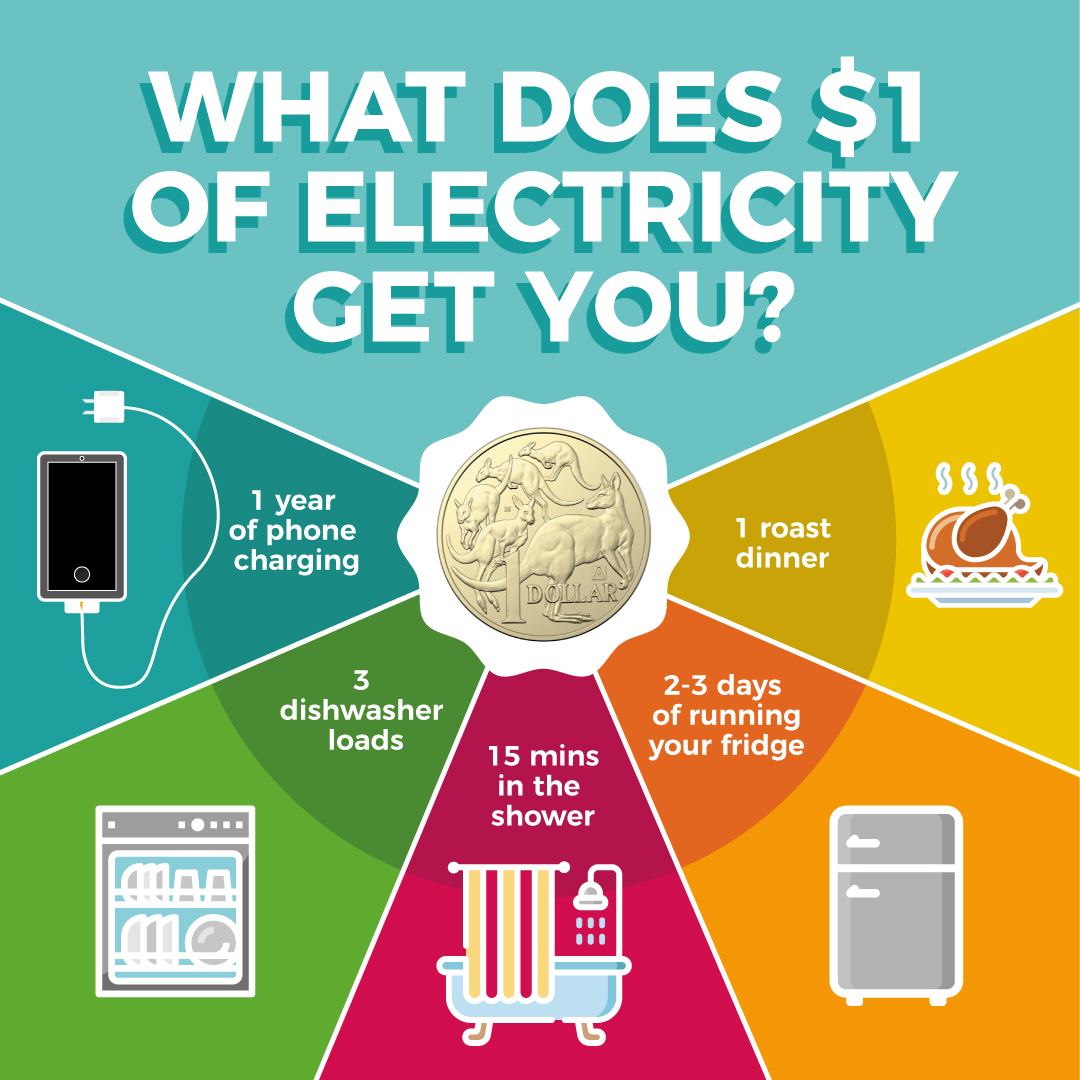
Reference: Energy Networks Australia
EWON’s membership continues to increase and we now have 167 members, compared to 86 at the beginning of the financial year. Of these, 93 are exempt entities which operate embedded networks increasingly found in residential complexes, residential parks and retirement villages. This means that every day more embedded network customers receive access to free, fair and independent energy advice and dispute resolution.
Energy distributors have been required to reduce some of their customer facing work and this may include undertaking meter readings. This means that customers without digital meters may receive estimated bills. If you receive a bill based on an estimated reading, you can ask your provider to adjust the bill by giving them your own meter reading - you must provide the self-read before the payment date of the estimated bill. Find more information here.
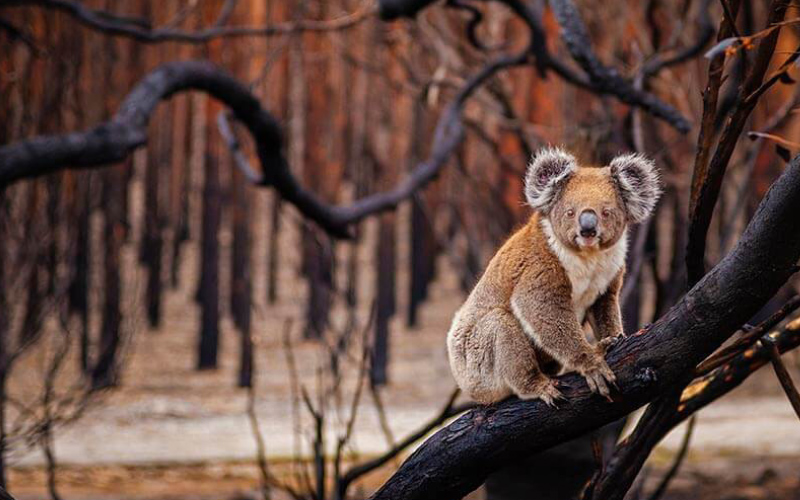
The impact of bushfires across NSW earlier this year was devastating and now many of those affected are also dealing with the extra impact of the COVID-19. During the fires, energy retailers and networks established a range of support measures to assist affected customers. You can find them here. EWON continues to prioritise enquires and complaints relating to the bushfires.
Book an online information session
Due to COVID-19 we have deferred our planned face-to-face community outreach events for the foreseeable future. We continue to engage with community workers supporting customers on the ground and are looking at new ways to support vulnerable customers.
One of our new initiatives is providing free online information sessions for community and government organisations, tailored to you needs and audience. Find out more and book a presentation here.
Below are some outreach highlights from earlier this year.
Connecting with NSW farmers

In February, we joined the global charitable organisation, Rapid Relief Team, to take part in four of their Farmers Community Connect days, which brought rural support and farming families together in different locations. We attended events in Warren, Cobar, Inverell and Goondiwindi which gave us the unique opportunity to meet with farming families and let them know about the assistance we offer. Around 600 farmers attended each event with their families and accessed local support groups including mental health services, rural financial counselling and veterinary services.
Reaching out at the Yabun Festival
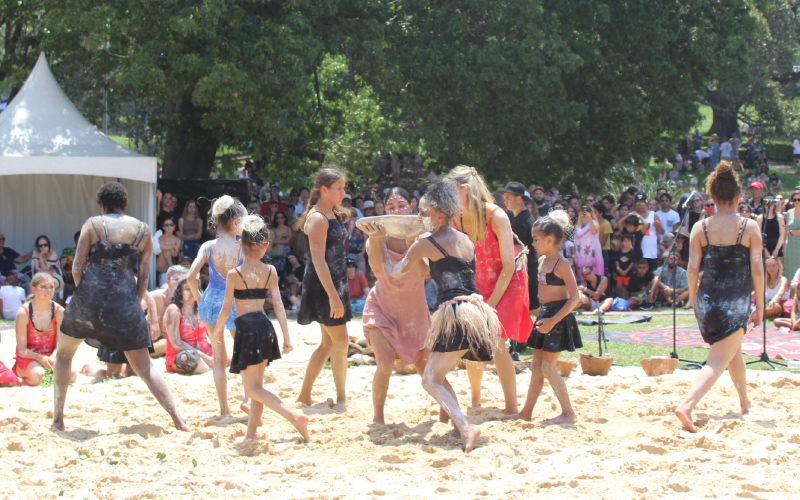
Every year EWON has a stall at the largest gathering of Aboriginal and Torres Strait Islander people in Australia, Yabun. Held every January in Sydney’s Victoria Park, the festival celebrates and recognises Aboriginal culture. This year more than 15,000 people attended the festival and we engaged with 500 attendees who took away our information and resource bags.


